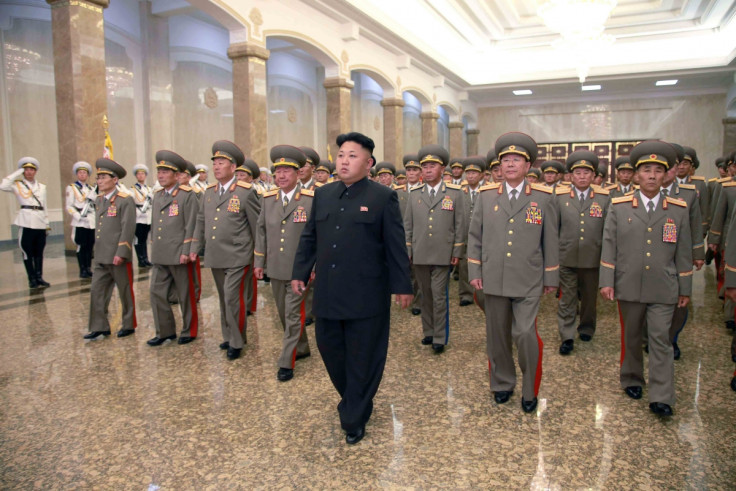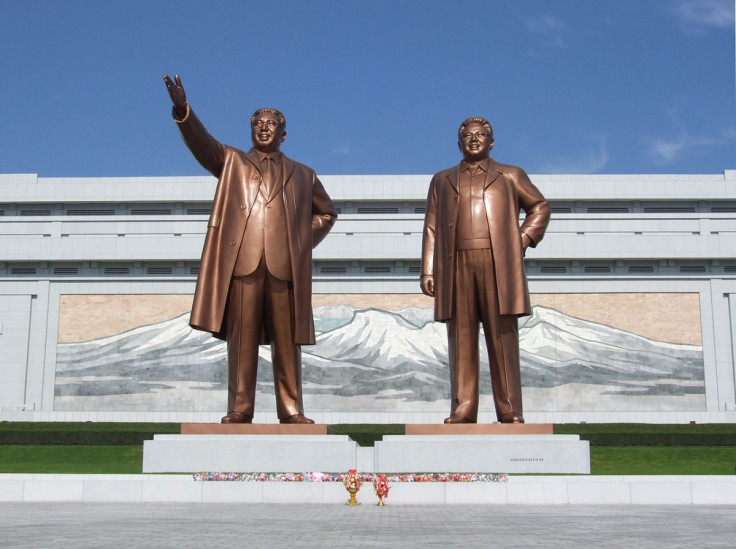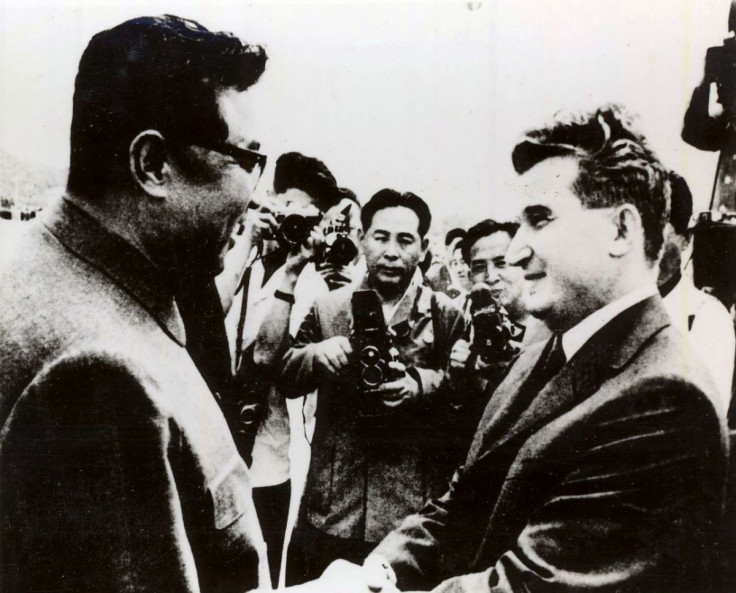Kim Il-sung Death Anniversary: How the North Korea Founder Created a Cult of Personality

Twenty years ago today, North Korean founder Kim Il-sung died at the age of 82 after showing few signs that his health was waning.
Having ruled the northern half of the Korean peninsula for four and a half decades, at the time, he was the world's longest-reigning "Great Leader". His death came as a shock to many inside the country and out, as even those who had defected to the South wept with those on the streets of Pyongyang.
To mark the anniversary of his grandfather's death, the North's current leader Kim Jong-un presided over a mass memorial meeting in the capital. Broadcast by North Korean state TV, Kim appeared to be limping slightly as he walked to his seat, while showered with a standing ovation from thousands of military officials.
The leadership podium was set against a backdrop of a red flag surrounding the giant portrait of a smiling Kim Il-sung.
Early life
Reportedly born in the village of Mangyungbong, which sits on a peak in the Rangrim Range of mountains near Pyongyang, Mr Kim's family was a step away from poverty. His background is obscure, but he claimed to have been raised by a Presbyterian family, who resented the Japanese occupation of the Korean peninsula and participated in dissident activities. It is believed that the family fled to Manchuria in 1920.

Controversy surrounds Kim's political career before the founding of North Korea, with some sources indicating he was an imposter who took the name of a prominent early leader of the Korean resistance, Kim Kyung-cheon.
Grigory Mekler, a Soviet spin doctor who is to have prepared Kim to lead North Korea, says that Kim assumed this name while in the Soviet Union in the early 1940s from a former commander who had died. It is not known whether this is true.<sup>
Political career and the Rise of the Cult of Personality
In 1926, Kim founded the Down-With-Imperialism Union in order to fight Japanese imperialism and promote Marxist-Leninism. It is considered by North Korea to be the roots and foundation of its ruling party, the Workers' Party of Korea.
Kim joined the Communist Party of China in 1931, after joining various anti-Japanese guerilla groups in northern China. In 1935, he became a member of the Northeast Anti-Japanese United Army, led by the Communist Party of China.
In 1935, he took the name Kim Il-sung - meaning "become the sun" - and was appointed commander of the 6th division two years later, controlling "Kim Il-sung's division". Although they only captured a small Japanese-held town just across the Korean border for a few hours, it was considered a military success at this time.
After the Soviet Union declared war on Japan in August 1945 and the Red Army entered Pyongyang with almost no resistance. Kim was recommended for the post of Communist leader for the Soviet-occupied territories and became the chairman of the Interim People's Committee in 1946, making him "the top Korean administrative leader in the North".

The Democratic People's Republic of Korea was proclaimed on 9 September 1948, with Kim as the Soviet-designated premier. Earlier that year, the south had declared statehood as the Republic of Korea.
By 1949, Kim and the Communists had consolidated totalitarian rule in North Korea and all parties and mass organisations were either eliminated or consolidated into the Democratic Front for the Reunification of the Fatherland, a popular front but one dominated by the Workers Party.
Around this time, the "cult of personality" was promoted by the Communists, the first statues of Kim appeared, and he began calling himself "Great Leader".
The North Korea state media, one of the most strictly controlled in the world, the government prohibits the exercise of freedom of speech and the press in practice.
In Reporters Without Borders 2013 to 2014 report, North Korea's media environment ranked 178th out of 179 countries in the rankings, above Eritrea.
Kim held the posts of prime minister from 1948 to 1972 and president until his death in 1994, authorising the invasion of South Korea in 1950. It triggered a police action by the United Nations led by the United States and a cease-fire in the Korean War was signed on 27 July 1953.
© Copyright IBTimes 2025. All rights reserved.




















